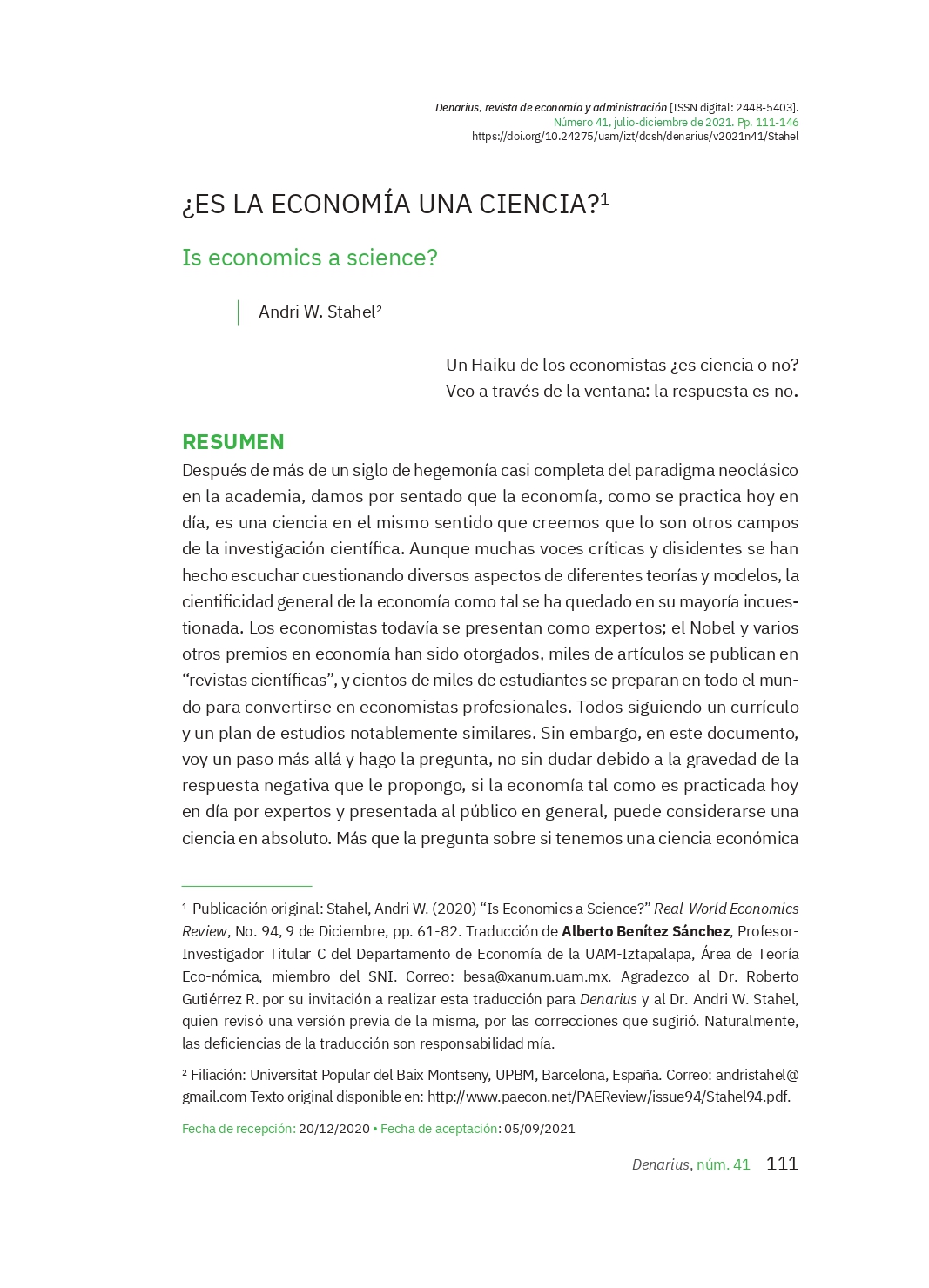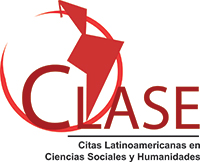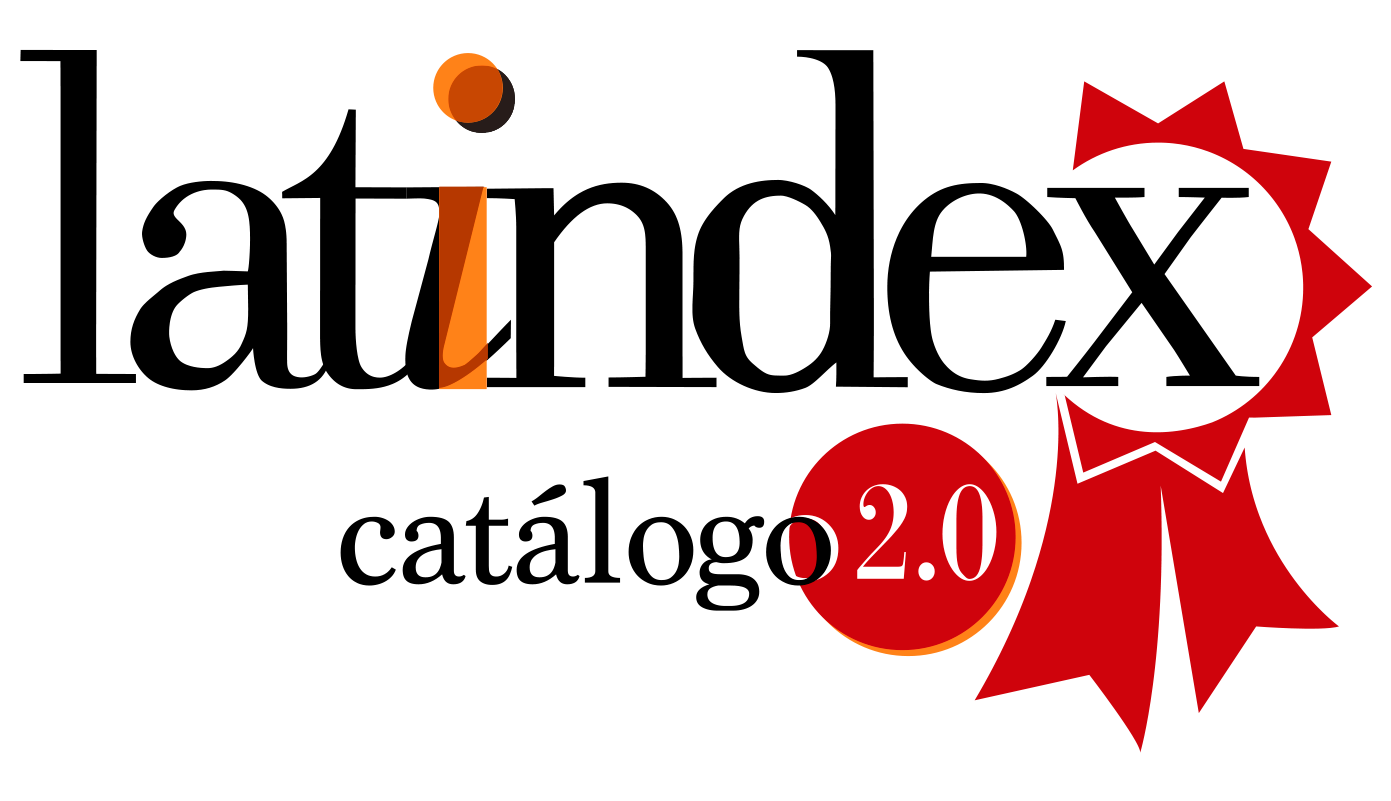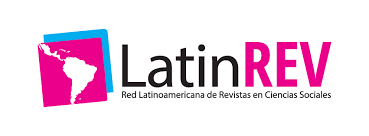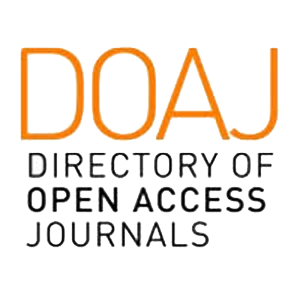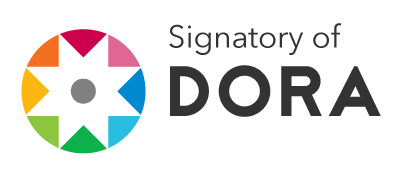Is economics a science?
Abstract
After more than a century of near-complete hegemony of the neoclassic paradigm in the academy, we take it for granted that economics, as it is nowadays practiced, is a science in the same sense we believe other fields of scientific inquiries to be. Although many critiques and dissenting voices can and have been heard questioning various aspects of different theories and models, the overall scientificity of economics as such has mostly been left unquestioned. Economists still present themselves as experts; Nobel and various other prizes in economics are awarded, thousands of papers are published in “scientific journals”, and hundreds of thousands of students engage in their studies worldwide to become professional economists. All following a remarkably similar student plan and curriculum all around the world. However, in this paper, I go a step further and ask the question, not without hesitation due to the seriousness of the negative answer I propose to it, whether economics as it is practiced nowadays by experts and presented to the public at large, can be considered a science at all. More than the question about whether we have a good or bad economic science, it is the whole edifice and the way modern economics has come to be, which is, thus, being questioned.
Downloads
References
Arida, Persio (1983). A História do Pensamento Econômico como Teoria e Retórica. Textos para Discussão no 54. Rio de Janeiro: Departamento de Economia de PUC-RJ.
Ash, Maurice (1999). “...or a private language.” Resurgence (193), Marzo/Abril.
Blaug, Mark (1975). “Kuhn versus Lakatos, or paradigms versus research programmes in the history of economics.” History of Political Economy (HOPE) Vol 7, no 4.
Blaug, Mark (1978 – Third Edition). Economic Theory in Retrospect. Cambridge: Cambridge University Press.
Bodie, Zvie and Merton, Robert C. (2000). Finance. New Jersey: Prentice Hall.
Capra, Fritjof (1997). “The Time Paradox.” Resurgence, no 185, Nov/Dic.
Chittenden, N. W. (1846). “Prefacio” a Newton, Sir Isaac (1686), version original en Latin/1846 First American edition) Newton’s Principia – The Mathematical Principles of Natural Philosophy. New York: Daniel Adee.
Dilthey, Wilhelm ([1883] 1989). Introduction to the Human Sciences – Selected Works, Vol. 1 (Edited by Rudolf A. Makkreel and Frithjof Rodi). Princeton: Princeton University Press.
Dobb, Maurice (1973). Theories of Value and Distribution since Adam Smith – Ideology and Economic Theory. Cambridge: Cambridge University Press.
Friedman, Milton (1953). Essays in Positive Economics. Chicago: Chicago University Press. ISBN: 0-226-26403-3.
Fullbrook, Edward (Ed.) (2006). Real World Economics - A Post-Autistic Economics Reader. London:Anthem Press. ISBN-13: 978 1 84331 247 5.
Georgescu-Roegen, Nicholas (1976). Energy and Economic Myths – Institutional and Analytical Economic Essays. New York: Pergamon Press.
Jevons, W. Stanley (1871/1879). The Theory of Political Economy. London: Macmillan.
Kuhn, Thomas S. (1962). The Structure of Scientific Revolutions. Chicago: University of Chicago Press. ISBN 0-226-45808-3.
Lakatos, Imre (1978). The methodology of scientific research programmes (Worral, John & Currie, Gregory, Eds). Cambridge: Cambridge University Press. ISBN: 978-0511621123.
Laplace, Pierre-Simon Marquis de (1902, French original from 1814). A Philosophical Essay on Probabilities, traducido al Inglés desde la version original en francés 6th ed. por Truscott, F.W. and Emory, F.L. New York: John Willey & Sons.
Ohlin, Bertil G. (1933). Interregional and international trade. Cambridge, MA: Harvard University Press.
Popper, Karl (1959). The Logic of Scientific Discovery. New York: Routledge. ISBN: 0-415-27844-9.
Prigogine, Ilya and Stengers, Isabelle (1984). Order out of Chaos – Man’s new dialogue with nature. New York: Bantam Books. ISBN: 0-533-34082-4.
Ricardo, David ([1817] 1960). The Principles of Political Economy and Taxation. London: J. M. Dent and Sons.
Shackle, G.L.S. (1967). The Years of High Theory. Cambridge: Cambridge University Press.
Smith, Adam ([1776] 1937) An Inquiry into the Nature and Causes of The Wealth of Nations. New York: Random House.
Stahel, Andri (2020). Oikonomy – The art of living and living well. Campins: Montseny – Spiral. ISBN: 978-84-09-20415-1.
Stahel, Andri W. (2005). “Value from a complex dynamic system’s perspective.” En Ecological Economics (54): 370-381.
Stahel, Andri W. (2006). “Complexity, oikonomía and political economy.” Ecological Complexity (3), pp. 369-381.
Toynbee, Arnold (1894/Primera edición publicada póstumamente en 1884). Lectures on the Industrial Revolution of the 18th Century in England – Popular addresses, notes and other fragments. London: Longmans, Green and Co.

